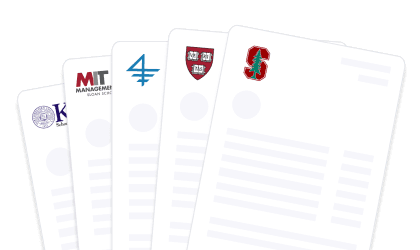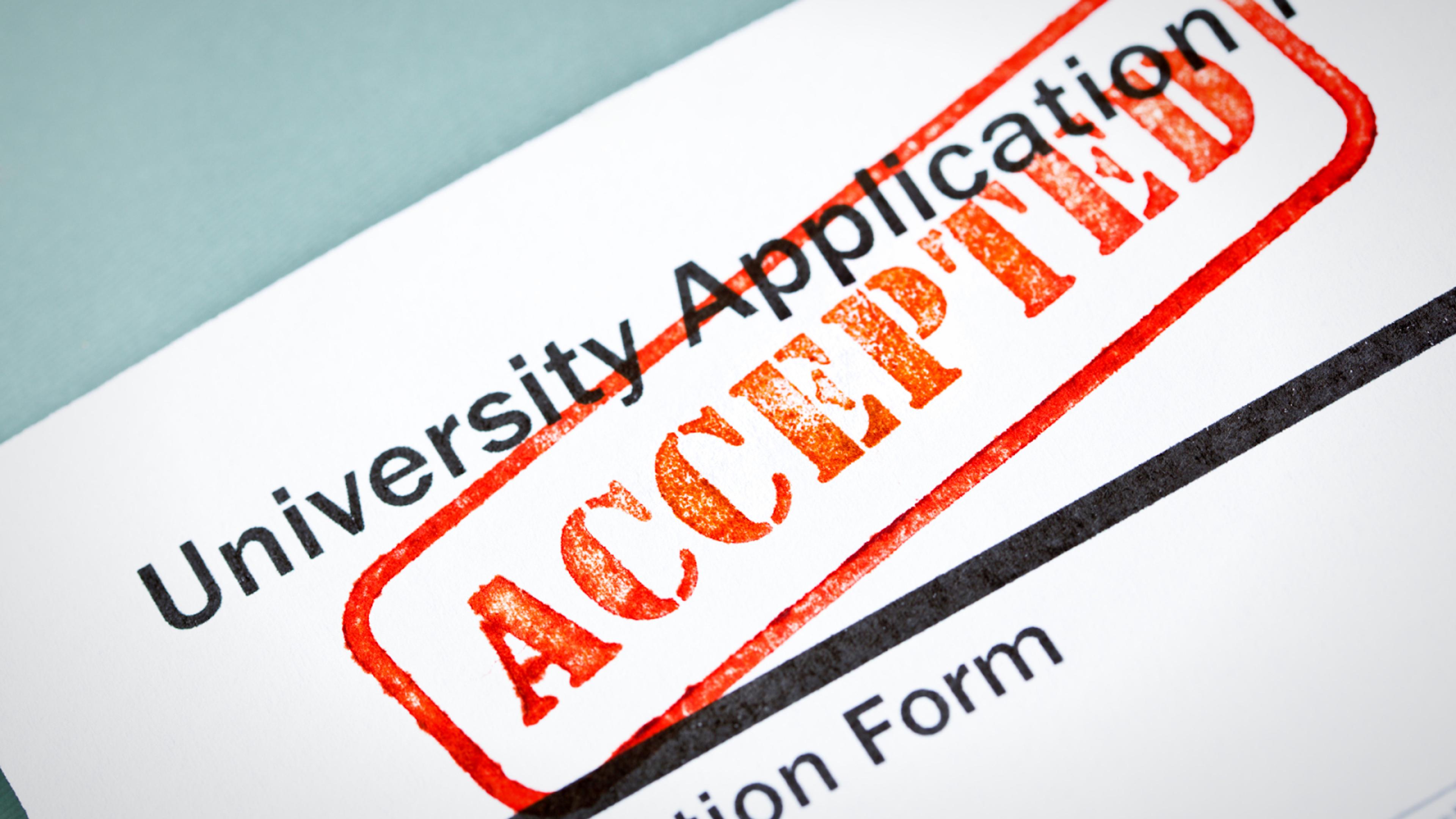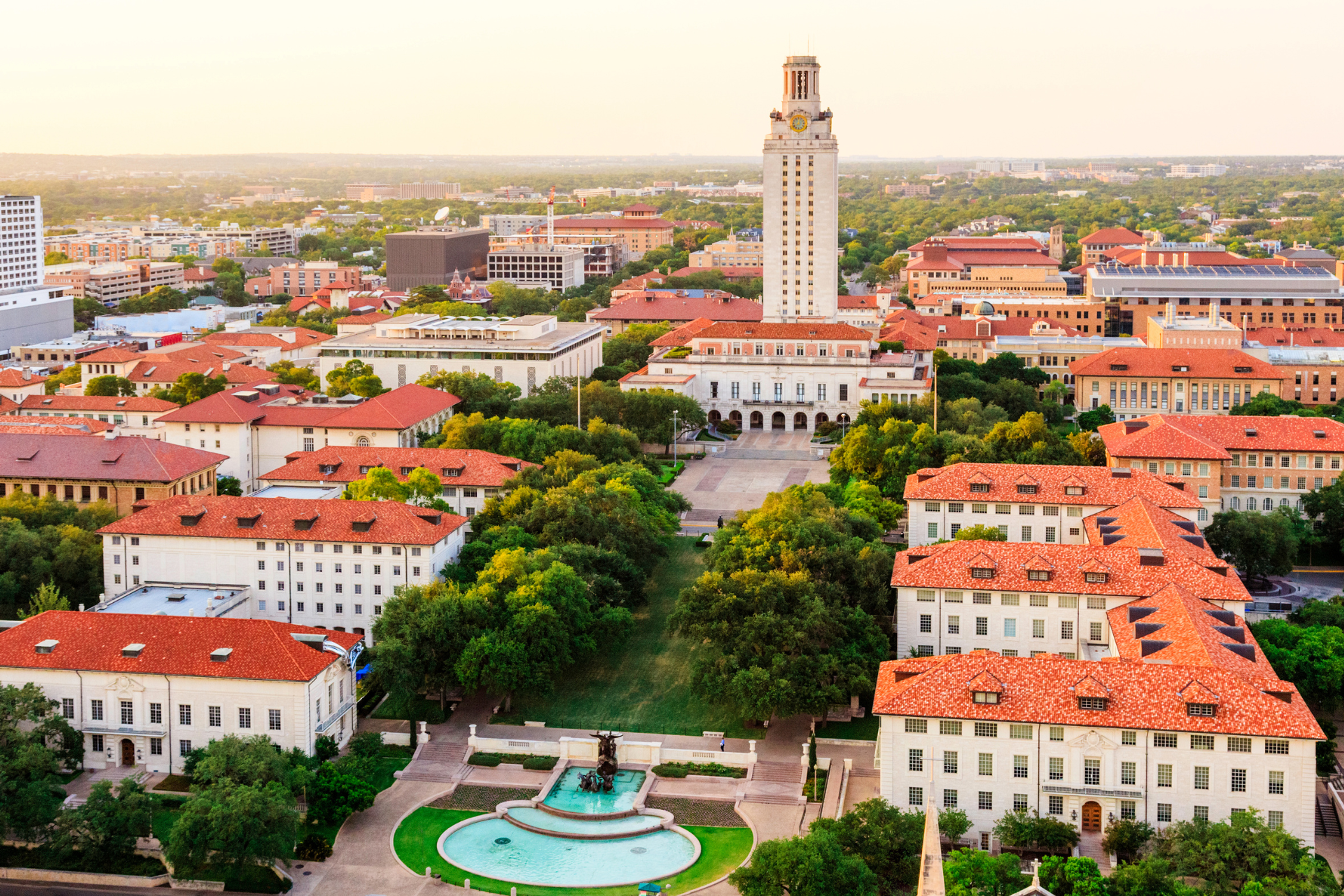Dartmouth Tuck MBA: Acceptance Rate, Deadlines, Cost, Requirements, & Program Overview
Applying to Tuck? Read this guide for the most practical strategies and tips curated by the best MBA admissions coaches in the world and Tuck alumni to get you that much closer to your dream school.
Posted June 17, 2025

Join a free event
Learn from top coaches and industry experts in live, interactive sessions you can join for free.
Table of Contents
Dartmouth Tuck School of Business MBA Program Overview (2025)
Founded in 1900, the Tuck School of Business at Dartmouth College is the first graduate school of management in the world. Located in Hanover, New Hampshire, Tuck is known for its close-knit community, rigorous academics, and strong alumni network. The program is highly selective, attracting ambitious professionals who seek collaborative leadership experiences and global exposure in their MBA journey.

Tuck's unique MBA program fosters a diverse Tuck culture, encouraging students from various backgrounds to contribute to an inclusive environment. Tuck’s two-year, full-time MBA program emphasizes teamwork, experiential learning, and personalized career support. The curriculum blends general management principles with opportunities for research-to-practice seminars, independent study, and global immersion experiences. Students benefit from small class sizes, individualized career coaching, and strong faculty mentorship. As a top-ranked business school, Tuck provides students with access to prestigious employers in consulting, finance, technology, and healthcare. The program’s key components include acceptance rates, tuition costs, application deadlines, GMAT/GRE scores, work experience requirements, and more—all of which are covered in this guide.
Tuck MBA Acceptance Rate
Tuck’s MBA acceptance rate is competitive, with a select number of applicants admitted each year. Tuck has a 23% acceptance rate, making it a highly competitive MBA program. For the Class of 2026, Tuck received 2,621 applications and admitted 287 students.
Tuck MBA Class Profile
Tuck’s Class of 2026 is composed of highly accomplished professionals from diverse backgrounds. The Tuck MBA students bring a wealth of experiences and perspectives, with a notable emphasis on diversity, including 44% female students. The unique aspects of the Tuck MBA experience, such as leadership opportunities and collaborative educational methods, contribute significantly to the overall satisfaction of Tuck students. Here’s a snapshot of the class profile:
- Class Size: 287
- Women: 44%
- International Students: 33%
- Average GMAT Score: 720
- GMAT Range: 650-780
- Average GRE Score: 161 (Verbal), 161 (Quant)
- Average GPA: 3.6
- Average Work Experience: 5.3 years
Tuck students benefit from a tight-knit MBA environment that fosters strong community dynamics. They have access to various extracurricular opportunities and a distinct curriculum that allows for specialization and hands-on projects.
Diversity Breakdown
- U.S. Minorities (All Students): 21%
- U.S. Underrepresented Minorities: 15%
- First-Generation College Graduates: 15%
- LGBTQ+ Representation: 7%
- Students with Partners: 32%
Industry Backgrounds
- Consulting: 34%
- Finance & Accounting: 22%
- Marketing & Sales: 19%
- General Management: 18%
- Operations & Logistics: 6%
- Other: 1%
The incoming class also showcases a diverse range of undergraduate majors, with students holding degrees in humanities, social sciences, business, engineering, technology, math, and science, reflecting a broad spectrum of academic backgrounds.
View the full Tuck Class Profile
Tuck MBA Cost — Tuition & Fees
The total cost of attendance for the Tuck MBA program includes tuition, fees, and living expenses. Tuck offers a variety of financial aid options, including scholarships, fellowships, and loan programs, to help students fund their MBA.
Cost Breakdown (2024-2025 Academic Year)
- Tuition: $81,000
- Total Estimated Cost (Including Living Expenses, Fees, & Health Insurance): ~$115,000 per year
- Average Scholarship Amount: $79,000
Financial Aid & Funding Options
Tuck offers merit-based scholarships and fellowships through generous contributions from alumni, corporations, and nonprofit organizations. Students are automatically considered for scholarships during the admissions process, with no additional application required.
- Scholarships & Fellowships: Funded through alumni, corporate sponsors, and nonprofit foundations.
- Loan Programs: Includes U.S. federal loans, Tuck institutional loans, and private bank loans.
- Online Resources: Additional funding opportunities outside of Tuck.
Learn more about Tuck tuition and fees
"Tuck has changed my trajectory for the better—both personally and professionally. It’s a once-in-a-lifetime experience, and while I’ve been responsible with my money, there are always creative solutions to make the Tuck experience possible."— Jane Maglaque T’21
Tuck MBA Employment Report
Graduates from Tuck School of Business consistently secure roles in top-tier industries and report high satisfaction with their post-MBA careers. Tuck’s strong alumni network, personalized career coaching, and global industry connections contribute to outstanding employment outcomes.
Employment Statistics for the Tuck MBA Class of 2024
- Employment Rate (3 months post-graduation): 89%
- Job Offers Received (3 months post-graduation): 91%
- Median Base Salary: $175,000
- Median Signing Bonus: $30,000
Top Industries for Tuck MBA Graduates
| Industry | Percentage of Graduates | Median Base Salary | Signing Bonus (Median) |
|---|---|---|---|
| Consulting | 44% | $190,000 | $30,000 |
| Financial Services | 24% | $175,000 | $50,000 |
| - Investment Banking | 17% | $175,000 | $50,000 |
| - Private Equity/Venture Capital | 2% | $160,000 | N/A |
| Technology | 10% | $147,500 | $35,000 |
| Healthcare, Pharma, Biotech | 8% | $135,000 | $30,000 |
| Consumer Goods & Retail | 6% | $128,000 | $22,500 |
| General Management | 9% | $140,000 | $30,000 |
Employment by Function
| Function | Percentage of Graduates | Median Base Salary | Signing Bonus (Median) |
|---|---|---|---|
| Consulting | 47% | $190,000 | $30,000 |
| Finance | 27% | $175,000 | $50,000 |
| - Investment Banking | 18% | $175,000 | $50,000 |
| - Private Equity/Venture Capital | 1% | $160,000 | N/A |
| Marketing | 11% | $135,000 | $30,000 |
| General Management | 9% | $140,000 | $30,000 |
Employment by Location
| Region | Percentage of Graduates | Median Base Salary |
|---|---|---|
| United States | 96% | $175,000 |
| - Northeast (Boston & New York) | 66% | $175,000 |
| - West (San Francisco, Seattle, Other) | 12% | $175,000 |
| - Midwest (Chicago & Other) | 7% | $180,000 |
| - Mid-Atlantic | 4% | $175,000 |
| - Southwest | 4% | $177,500 |
| - South | 3% | $170,000 |
| International | 4% | $130,000 |
Tuck graduates are highly sought after by leading firms across industries. The school’s dedicated Career Development Office provides tailored support to students, helping them navigate job searches, salary negotiations, and career transitions.
View the full Tuck employment report
Dartmouth Tuck MBA Application Overview
The Tuck School of Business at Dartmouth offers a rigorous, highly personalized MBA experience designed to develop wise, decisive leaders who make an impact in the business world. The Tuck MBA admissions process is structured to evaluate candidates based on academic excellence, leadership potential, and community engagement.
Tuck MBA Programs & Degrees
Tuck offers several MBA pathways to accommodate different career goals and life stages:
- Traditional, Full-Time MBA: A two-year, immersive MBA program designed for professionals aiming to advance in their careers or pivot industries.
- Tuck Deferred MB: An option for undergraduate students to secure admission to Tuck while gaining work experience before enrolling.
- Joint Degrees: Opportunities to combine the MBA with other graduate programs at Dartmouth, including public policy, engineering, and healthcare.
Tuck MBA Application Deadlines
The Tuck MBA application cycle consists of three rounds. Applicants who submit their complete application (including test scores and letters of recommendation) by the early deadlines are guaranteed an interview.
| Application Round | Deadline | Decision Released | Deposit Due |
|---|---|---|---|
| Round 1 | September 26, 2024 | December 12, 2024 | February 10, 2025 |
| Round 2 | January 6, 2025 | March 13, 2025 | April 21, 2025 |
| Round 3 | March 26, 2025 | May 1, 2025 | May 23, 2025 |
Dartmouth MBA Requirements

Application Checklist
1. Completed Online Application
All applicants must complete the Tuck School of Business online application, which includes personal details, educational history, employment history, and short-answer questions.
The Tuck MBA application evaluates candidates based on academic excellence, leadership potential, and engagement. Applicants should also note application deadlines to ensure timely submission.
2. Academic Transcripts
Candidates must provide transcripts from all undergraduate and graduate institutions attended.
- If a transcript is not in English, a certified translation must be included.
- Tuck does not require a specific GPA format; applicants should report their GPA as it appears on their official transcript.
- Those with a three-year undergraduate degree will be reviewed on a case-by-case basis.
- Non-native English speakers must demonstrate English language proficiency by providing scores from recognized tests.
3. Standardized Test Scores (GMAT or GRE)
- Tuck accepts GMAT and GRE scores for the Full-Time MBA program.
- Applicants may submit GMAT Focus Edition scores.
- Test scores must be valid at the time of application submission.
- Self-reported scores are allowed for the initial application, but official scores must be submitted upon admission.
- Tuck’s test score codes:
- GMAT: Z04-NH-64
- GRE: 4887
- English language proficiency is crucial for non-native speakers, who must submit standardized test scores to validate their skills.
Test Score Considerations
- No minimum score required, but competitive applicants generally score in the following ranges:
- GMAT: 650-780 (Average: 727)
- GRE Verbal: 150-169 (Average: 161)
- GRE Quantitative: 148-170 (Average: 161)
- Candidates cannot request a test score waiver unless they meet specific waiver criteria based on academic and professional experience.
4. Letters of Recommendation
Tuck requires two letters of recommendation, preferably from:
- Direct supervisors or professional mentors who can provide insights into the applicant’s leadership, teamwork, and achievements.
Additional Considerations
- If an applicant cannot request a recommendation from a current supervisor, they must explain the application.
- Recommenders should use a professional email address (personal emails may require additional verification).
- Tuck may contact recommenders for verification, so applicants should notify them in advance.

5. Resume (One Page Preferred)
Applicants must upload a one-page resume outlining their:
- Professional experience
- Leadership roles
- Academic achievements
- Extracurricular activities
6. Tuck MBA Essays
The Tuck MBA essays provide an opportunity to showcase your personal story, career goals, and alignment with Tuck’s values.
Essay Prompts (2024-2025)
- Why are you pursuing an MBA, and why now? How will the Tuck MBA contribute to achieving your goals? (300 words)
- Tell us who you are. How have your values and experiences shaped your identity and character? (300 words)
- Describe a time you contributed to someone else’s sense of inclusion. (300 words)
Reapplicants must answer:
- How have you strengthened your candidacy since you last applied? Reflect on your personal and professional growth. (300 words)
Learn more about Tuck MBA essays
7. Interview (By Invitation Only)
Tuck does not require interviews for all applicants, but highly encourages them. Applicants who submit their completed application by the guaranteed interview deadlines will secure an interview.
- Interviews may be conducted virtually or in person.
- Interviews assess communication skills, leadership potential, and cultural fit.
Learn more about Tuck MBA interviews
8. Application Fee
The Tuck MBA application fee is $250.
Fee waivers are available for:
- U.S. military members and veterans
- First-generation college graduates
- Participants in certain diversity and leadership programs
- Applicants facing financial hardship
The Tuck Difference
Tuck Campus Tour
Tuck MBA Curriculum & Class Structure
Year 1
Core Courses
The first-year curriculum is structured to build foundational business knowledge across multiple disciplines. Students take required core courses that provide a deep understanding of business principles:
- Analytics I & II
- Financial Accounting
- Management Communication
- Managerial Economics
- Managing People
- Capital Markets
- Corporate Finance
- Global Economics for Managers
- Crafting Strategy
- Marketing
- Managing Organizations
- Operations Management
First-Year Project (FYP)
The First-Year Project (FYP) is a hands-on consulting experience where students work in teams of five to solve real-world business challenges. Students either select a project from Tuck’s portfolio or source their own, allowing them to tailor the experience to their career interests.
Global Insight Expeditions (GIX)
These faculty-led international programs provide students with immersive learning experiences in different global markets. Students analyze business environments, explore cultural influences, and work on projects that enhance their global business acumen.
Year 2
Electives & Independent Studies
The second-year curriculum is highly flexible, allowing students to customize their MBA experience. Students can choose from a wide range of electives across various disciplines, including finance, marketing, strategy, healthcare, technology, and entrepreneurship. Independent studies offer students the chance to work on self-directed research or projects under faculty supervision.
Global Opportunities
Students have access to international exchange programs, GIX, and global consulting projects that allow them to expand their understanding of international business challenges.
Leadership Development
Leadership courses and experiential learning opportunities help students refine their management and leadership skills. Programs such as Tuck’s Center for Leadership, coaching sessions, and leadership simulations prepare students for executive roles post-MBA.
Explore Tuck’s MBA curriculum
How to Get Into Tuck MBA
Dartmouth Tuck is known for its tight-knit community, collaborative culture, and emphasis on leadership development. The admissions committee looks for candidates who align with Tuck’s core values: smart, accomplished, aware, and encouraging. To maximize your chances of admission, focus on the following key areas:
1. Demonstrate Strong Leadership and Teamwork
Tuck values candidates who have demonstrated leadership in their careers, communities, and personal lives. The admissions team looks for individuals who can lead with and through others, which means effective teamwork is just as important as independent achievements.
How to Show Leadership in Your Application:
- Highlight experiences where you led teams, influenced change, or took initiative.
- Use specific examples in your resume and essays to showcase impactful leadership roles.
- Discuss leadership growth—Tuck values potential, so show how you've evolved as a leader.
- If you don’t hold a formal leadership position, highlight how you led by influence (mentorship, initiating projects, team problem-solving).
How to Demonstrate Strong Teamwork:
- Show how you have collaborated effectively with diverse teams.
- Discuss moments where you supported and uplifted team members.
- Illustrate how you have contributed to creating inclusive and engaging environments.
- Use your letters of recommendation to reinforce your ability to work well with others.
Expert Tip: Tuck’s close-knit culture thrives on candidates who actively contribute to their community. Demonstrate in your application how you will engage with and enhance the Tuck MBA experience.
2. Score Well on the GMAT/GRE
While Tuck does not have an official minimum GMAT or GRE score, competitive applicants typically score:
- GMAT: 720+ (Tuck’s average GMAT score is around 724)
- GRE: 162+ per section
How to Strengthen Your Test Score:
- Assess which test suits you best (GMAT vs. GRE) and focus on the one that aligns with your strengths.
- Consider retaking the test if your score is significantly below the average.
- Demonstrate strong quantitative ability in other parts of your application if your score is slightly lower.
Note: Tuck does offer test waivers for candidates who demonstrate strong quantitative and analytical competency through academics and work experience. However, submitting a competitive test score may enhance your application.
3. Clearly Articulate Why Tuck Is the Right Fit for Your Career Goals
Tuck looks for candidates who have researched the school deeply and can explain why Tuck is the best MBA program for their goals. A generic response won’t work—you need to provide a compelling, personalized reason for why Tuck is the right choice for you.
How to Show Fit in Your Application:
- Connect your career goals to Tuck’s offerings.
- Explain how specific courses, professors, or programs will help you reach your goals.
- Mention experiential learning opportunities like First-Year Project (FYP) or Global Insight Expeditions (GIX).
- Demonstrate an understanding of Tuck’s culture.
- Talk about the value of Tuck’s small class size, strong alumni network, and collaborative environment.
- Show how you will contribute to the community (student clubs, leadership roles, or initiatives you’d like to start).
- Leverage conversations with Tuck alumni or current students.
- Reference insights from your conversations with the Tuck community in your essays and interviews.
4. Craft Thoughtful, Authentic Essays
Tuck’s essays are a crucial part of the application. They allow you to showcase your personality, values, and alignment with Tuck’s mission.
How to Write Strong Tuck MBA Essays:
- Be personal and specific. Avoid generic responses and use detailed stories to illustrate your points.
- Use the STAR method (Situation, Task, Action, Result) to structure your essays.
- Align your response with Tuck’s values. Tuck values humility, curiosity, and collaboration, so ensure your essays reflect these traits.
- Show self-awareness. Admissions wants to see reflection and personal growth in your essays.
5. Ace the Tuck MBA Interview
Interviews at Tuck are invite-only and play a major role in admissions decisions. The interview assesses your leadership, teamwork, goals, and fit with Tuck’s culture.
How to Prepare for the Tuck MBA Interview:
- Know your story. Be able to clearly articulate your career journey, why you want an MBA, and why Tuck specifically.
- Expect behavioral questions. Use the STAR method to structure your answers.
- Demonstrate enthusiasm for Tuck. Show that you understand and appreciate Tuck’s unique community.
- Engage with your interviewer. Tuck values emotional intelligence and interpersonal skills—be warm, engaging, and thoughtful.
6. Secure Strong Letters of Recommendation
Tuck requires two letters of recommendation, preferably from direct supervisors or professional mentors.
What Tuck Looks for in Recommendations:
- Evidence of leadership, collaboration, and impact.
- Concrete examples of your strengths.
- How you compare to peers in similar roles.
How to Get Strong Recommendations:
- Choose recommenders who know you well and can provide specific, detailed examples.
- Prepare your recommenders by sharing your career goals and key experiences you’d like highlighted.
- Ensure they focus on Tuck’s four admissions criteria: smart, accomplished, aware, and encouraging.
7. Showcase a Well-Rounded, Impactful Profile
While academics and test scores are important, Tuck takes a holistic approach to admissions. To stand out, ensure you highlight:
- Professional achievements: Show increasing responsibility, leadership, and impact in your career.
- Community involvement: Tuck values individuals who contribute beyond their jobs. Highlight volunteer work, mentorship, or extracurricular activities.
- Global and cross-cultural experience: If you have worked in diverse teams, international projects, or studied abroad, make sure to include that.
- Entrepreneurial mindset: Even if you’re not an entrepreneur, demonstrate initiative, problem-solving skills, and the ability to drive change.
Dartmouth Tuck Notable Alumni & Faculty
Notable Alumni
- Sarah Ketterer T’87 – CEO of Causeway Capital Management, recognized as one of Barron’s 100 Most Influential Women in Finance.
- Karen Colberg T’91 – CEO of King Arthur Baking Company, known for her leadership in sustainability and company culture.
- Michael Aragon T’01 – Former CEO of MIRROR, instrumental in Lululemon’s expansion into digital fitness.
- Luis Felipe Castellanos T’98 – CEO of Interbank, leading digital transformation in Peru’s financial sector.
- Nancy Pak TEE’11 – Former CEO of Tate’s Bake Shop & Walden Local Meat Co., focusing on brand growth and sustainability.
Notable Faculty
- Matthew J. Slaughter – Dean of Tuck and expert in globalization, trade, and economic policy.
- Sydney Finkelstein – Professor of Strategy, author of Superbosses, and expert in leadership and talent development.
- Paul A. Argenti – Professor of Corporate Communication, specializing in crisis management and corporate reputation.
- Vijay Govindarajan – Leading authority on innovation and strategy, known for reverse innovation research.
- Constance E. Helfat – Professor of Strategy, focusing on technology innovation and organizational learning.
Get Into Tuck MBA With the Help of Experts
Applying to Tuck can be challenging, but working with an expert coach can help refine your application, essays, and interview responses.
Here are three of the most popular MBA admissions consultants for Dartmouth Tuck MBA:
- Naomi E. – Tuck MBA & Harvard MPA, essay and interview expert with a background in management consulting and startups.
- Elizabeth J. – Citi SVP and former admissions committee member, specializing in application strategy and financial aid.
- Jeremy W. – Tuck MBA, Harvard MPA, and ex-BCG consultant, helping non-traditional applicants and aspiring consultants succeed.
Related Articles
- How to Nail Your Dartmouth Tuck MBA Interview: Overview, Questions, and Tips
- The Different Types of MBA Programs—and Which One is Right for You
- How to Ace Your MBA Interview: With Prep Questions & Answers
- Dartmouth Tuck MBA Essays Guide: Overview, Tips & Examples
- MBA Essay Too Long? Here's How to Fix It
FAQs
Is Dartmouth Tuck Ivy League?
- Yes, the Tuck School of Business is part of Dartmouth College, which is a member of the Ivy League. Tuck is one of the oldest graduate business schools in the U.S. and is known for its tight-knit community, rigorous academics, and strong alumni network.
What is Dartmouth Tuck known for?
- Tuck is known for its collaborative culture, small class size, and general management focus. The school emphasizes leadership, teamwork, and a personalized learning experience. It is also recognized for its First-Year Project (FYP), strong alumni engagement, and excellence in consulting and finance placements.
How much do you get paid at Dartmouth Tuck?
- Tuck graduates earn competitive salaries across industries. The median base salary for the Class of 2024 is $175,000, with signing bonuses averaging $30,000. Graduates entering consulting report the highest salaries, with a median of $190,000 plus performance incentives.
What is the acceptance rate for Tuck School of Business at Dartmouth?
- The acceptance rate for the Tuck MBA program is approximately 22-23%, making it a competitive program. Tuck seeks candidates who demonstrate strong leadership, teamwork, and a commitment to the community.
What is the hardest business school to get into?
- Harvard Business School, Stanford GSB, and Wharton are often considered the hardest business schools to get into, with acceptance rates below 10%. While Tuck is highly selective, it places significant emphasis on fit, leadership potential, and personal engagement rather than just test scores.
Is it hard to get into Tuck?
- Yes, gaining admission to Tuck is challenging, but not impossible. Applicants with a strong GMAT/GRE score (typically 720+), clear career goals, leadership experience, and a demonstrated fit with Tuck’s community-driven culture have a competitive edge. Tuck values applicants who are smart, accomplished, aware, and encouraging—the four pillars of its admissions criteria.






























